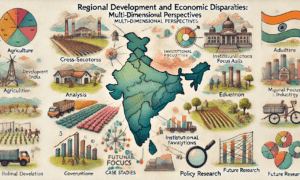The New Face of Global Business in India
Imagine building a complex product like a smartphone. In the past, one company would handle everything under a single roof. Today, that same phone might have its software coded in Bangalore, components manufactured in Gujarat, and assembly completed elsewhere. This transformation in how global companies operate is reshaping India’s economic landscape in fascinating ways.
Understanding the Shift: From Ownership to Partnership
Traditional wisdom suggested that multinational enterprises (MNEs) needed to own their overseas operations. But a revolution is quietly unfolding. Global companies are increasingly choosing to work with independent Indian firms rather than setting up their own subsidiaries. Here’s what’s driving this change:
- Value chains are becoming more fragmented
- Companies are focusing on core competencies
- Technology makes coordination easier
- Cost advantages of specialized suppliers
- Greater flexibility in operations
India’s Success Story: Three Industries Leading the Way
- Information Technology
- By 2010, India captured 55% of the global outsourcing market
- About two-thirds of Fortune 500 companies outsource software needs to India
- Growth driven by both independent service providers and company-owned centers
- Pharmaceuticals
- Indian companies have become trusted partners for global pharma giants
- Success stories include partnerships with:
- Eli Lilly for drug intermediates
- GlaxoSmithKline for tuberculosis medicines
- AstraZeneca for research and development
- Automotive
- Indian auto-component makers now supply global markets
- Major achievements include:
- 90% localization in Maruti Suzuki’s production
- Toyota sourcing from over 67 local suppliers
- Ford targeting $500 million in global sourcing from India
The Secret Sauce: What Makes India Attractive?
- Skilled Workforce
- Large pool of educated professionals
- English language advantage
- Cumulative experience in serving global clients
- Cost Effectiveness
- Competitive labor costs
- Efficient production capabilities
- Scale economies
- Quality Standards
- ISO certifications
- FDA-approved facilities
- Global quality management systems
Challenges and Opportunities Ahead
While the story is impressive, sustaining success requires addressing key challenges:
- Maintaining quality standards
- Upgrading technological capabilities
- Clarifying intellectual property regulations
- Improving infrastructure
- Developing regulatory frameworks
Practical Takeaways
For Indian Companies:
- Invest in quality certifications
- Build long-term relationships with global partners
- Focus on moving up the value chain
- Develop specialized capabilities
For Policy Makers:
- Strengthen regulatory frameworks
- Invest in infrastructure
- Support skill development
- Facilitate technology adoption
For Global Companies:
- Consider India for both basic and advanced operations
- Build partnerships with local firms
- Invest in supplier development
- Take a long-term view of the market
Looking Ahead
This transformation in how global companies operate in India represents more than just a business trend. It’s creating jobs, transferring technology, and building local capabilities. As one expert noted, “Unlike traditional foreign investment that might crowd out local firms, these partnerships are actually boosting domestic enterprise.”
The key to future success lies in balancing global standards with local capabilities, ensuring that both international companies and Indian firms benefit from these evolving relationships.
Academic Abstract:
The development policy literature on multinational enterprises (MNEs) is yet to adequately analyze the emerging cross-border activities of MNEs through emerging modes of non-equity operation like international outsourcing. As a result of accelerating globalization process and growing trend of vertical disintegration of value-chains, MNEs and their foreign affiliates are increasingly sourcing raw materials, intermediates, parts and services from independent suppliers based in emerging and developing economies like India. It is, therefore, necessary that host countries like India should appreciate this non-equity operation of MNEs and formulate suitable policies for enhancing their development impacts.
Learn More:
Full citation: Pradhan, Jaya Prakash (2011), ‘Non-equity Operations of Multinational Enterprises in India: Focus on Outsourcing’, Transnational Corporations Review, 3(2), pp. 1–11, Publisher: Routledge, Taylor & Francis.
Learn More:





































